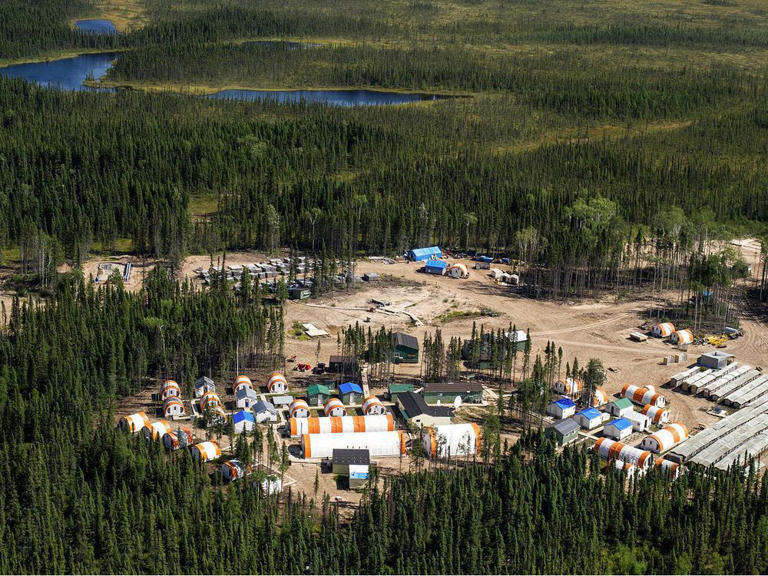Ring of Fire stalled due to exclusion of First Nations, Guilbeault says
© Provided by Financial Post
Environment Minister Steven Guilbeault says the lack of progress in mining projects in the mineral-rich Ring of Fire region in Northern Ontario can likely be attributed to an exclusion of perspectives from Indigenous nations .
Both the federal government and province of Ontario believe the Ring of Fire, located about 500 kilometres from Thunder Bay, has the potential to produce minerals — such as nickel and copper — currently in high demand as countries look to accelerate the shift away from fossil fuels.
But the region has also been described as a “ challenging space ” by Natural Resources Minister Jonathan Wilkinson in December last year as a large portion of the region is made up of peat or wetlands, which act as carbon sinks. Some Indigenous nations have also raised concerns about development in the space, though two First Nations support the building of a road that will make it easier for companies to mine the region.
Guilbeault at a press conference on July 14 said more conversations with Indigenous nations are needed if mining of the region is to move forward.
“For any development to happen in the Ring of Fire, Indigenous nations will need to be part of the discussion in decision making process,” he said. “That hasn’t happened, which is why I think we are not seeing any development.”
The development of the Ring of Fire region is a component of Canada’s plan to build a new electric vehicle battery industry . Currently, the processing of battery minerals is controlled by China. Canada, along with the United States, has taken a number of steps in the last year to lessen its dependence on the Asian country for battery materials.
Guilbeault said the government has been working with Indigenous nations in Northern Ontario along with the province to agree to a framework on how to mine the region.
“Unfortunately, we haven’t been able to agree yet,” Guilbeault said. “We are still working on a proposal for regional impact assessment and so far the Indigenous nations have agreed to move ahead with this. We are waiting on the Ontario government to tell us whether or not they want to proceed jointly.”
A response from Ontario’s Ministry of Mines wasn’t immediately available.
Premier Doug Ford’s government has been vocal in its support for mining in the region. It is currently working on building an all-season pathway to connect the Ring of Fire with manufacturers in the southern part of the province.
Environment Minister Steven Guilbeault says the lack of progress in mining projects in the mineral-rich Ring of Fire region in Northern Ontario can likely be attributed to an exclusion of perspectives from Indigenous nations .
Both the federal government and province of Ontario believe the Ring of Fire, located about 500 kilometres from Thunder Bay, has the potential to produce minerals — such as nickel and copper — currently in high demand as countries look to accelerate the shift away from fossil fuels.
But the region has also been described as a “ challenging space ” by Natural Resources Minister Jonathan Wilkinson in December last year as a large portion of the region is made up of peat or wetlands, which act as carbon sinks. Some Indigenous nations have also raised concerns about development in the space, though two First Nations support the building of a road that will make it easier for companies to mine the region.
Guilbeault at a press conference on July 14 said more conversations with Indigenous nations are needed if mining of the region is to move forward.
“For any development to happen in the Ring of Fire, Indigenous nations will need to be part of the discussion in decision making process,” he said. “That hasn’t happened, which is why I think we are not seeing any development.”
The development of the Ring of Fire region is a component of Canada’s plan to build a new electric vehicle battery industry . Currently, the processing of battery minerals is controlled by China. Canada, along with the United States, has taken a number of steps in the last year to lessen its dependence on the Asian country for battery materials.
Guilbeault said the government has been working with Indigenous nations in Northern Ontario along with the province to agree to a framework on how to mine the region.
“Unfortunately, we haven’t been able to agree yet,” Guilbeault said. “We are still working on a proposal for regional impact assessment and so far the Indigenous nations have agreed to move ahead with this. We are waiting on the Ontario government to tell us whether or not they want to proceed jointly.”
A response from Ontario’s Ministry of Mines wasn’t immediately available.
Premier Doug Ford’s government has been vocal in its support for mining in the region. It is currently working on building an all-season pathway to connect the Ring of Fire with manufacturers in the southern part of the province.
First Nations forge alliance over mining concerns
Federal minister Wilkinson however, has been more circumspect. In an interview in December he said there were proposals for many other mines in Ontario and other parts of Canada that are “far closer to realization” than the Ring of Fire.
The minister added that people “often get stuck” on the Ring of Fire because of its massive potential. However, from environmental assessments to the proposal of a mining project, there’s still a long way to go before mining can actually begin in the region, he said.

No comments:
Post a Comment